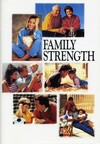

Are you sure?
This bookmark will be removed from all folders and any saved notes will be permanently removed.
Forgiving the abuser
Even if we've been harmed severely, forgiveness is possible—and essential to our salvation.
There is a divine demand to forgive. If we are Christians, we have to. The Master, Christ Jesus, told us to pray, "Forgive us our debts, as we forgive our debtors." When we don't forgive those who we think have wronged us, we may find it difficult to feel God's love for us. We might even find that healings are harder to come by.
The questions come thick and fast as we ponder the subject of forgiveness. What does it actually mean to forgive? Is it enough to stop resenting, or do we have to "forgive and forget," as the adage goes? If we truly believe we have been badly hurt by another, do we have to forgive even under those circumstances?
Several years ago I found myself carrying around a very large burden of resentment stemming from being abused as a child. I felt quite justified in my resentment. After all, I didn't hate those who had hurt me; I just didn't want anything to do with them. And, to be honest, I secretly wanted them to suffer because I had suffered. This was hardly a Christian attitude. Gradually, as I prayed about it, I realized that I didn't want to carry this burden around with me. It was affecting my ability to love others. I didn't feel free, but darkened and bowed down.
Enjoy 1 free Sentinel article or audio program each month, including content from 1898 to today.
JSH Collections
This article is included in:
1995 - PAMPHLET
Family strength
JSH-Online has hundreds of pamphlets, anthologies, and special editions for you to discover.

March 29, 1993 issue
View Issue-
FROM THE EDITORS
The Editors
-
Forgiving the abuser
Deborah Appleton Huebsch
-
The kingdom within— what does it mean?
Camille H. MacKusick
-
Letters to the PRESS— and other articles
with contributions from M. Victor Westberg
-
"Wilt thou be made whole?"
Käte Meier
-
Healing by making right choices
Jacklyn J. Williams
-
Revising a history of abuse
Russ Gerber
-
You did it! You prayed!
Mary Metzner Trammell
-
Hold on!
Gisela Kitchingman
-
From my earliest childhood I attended church meetings and...
Roberta Christian
-
A couple of years ago, when returning from visiting family...
William E. Harvey


